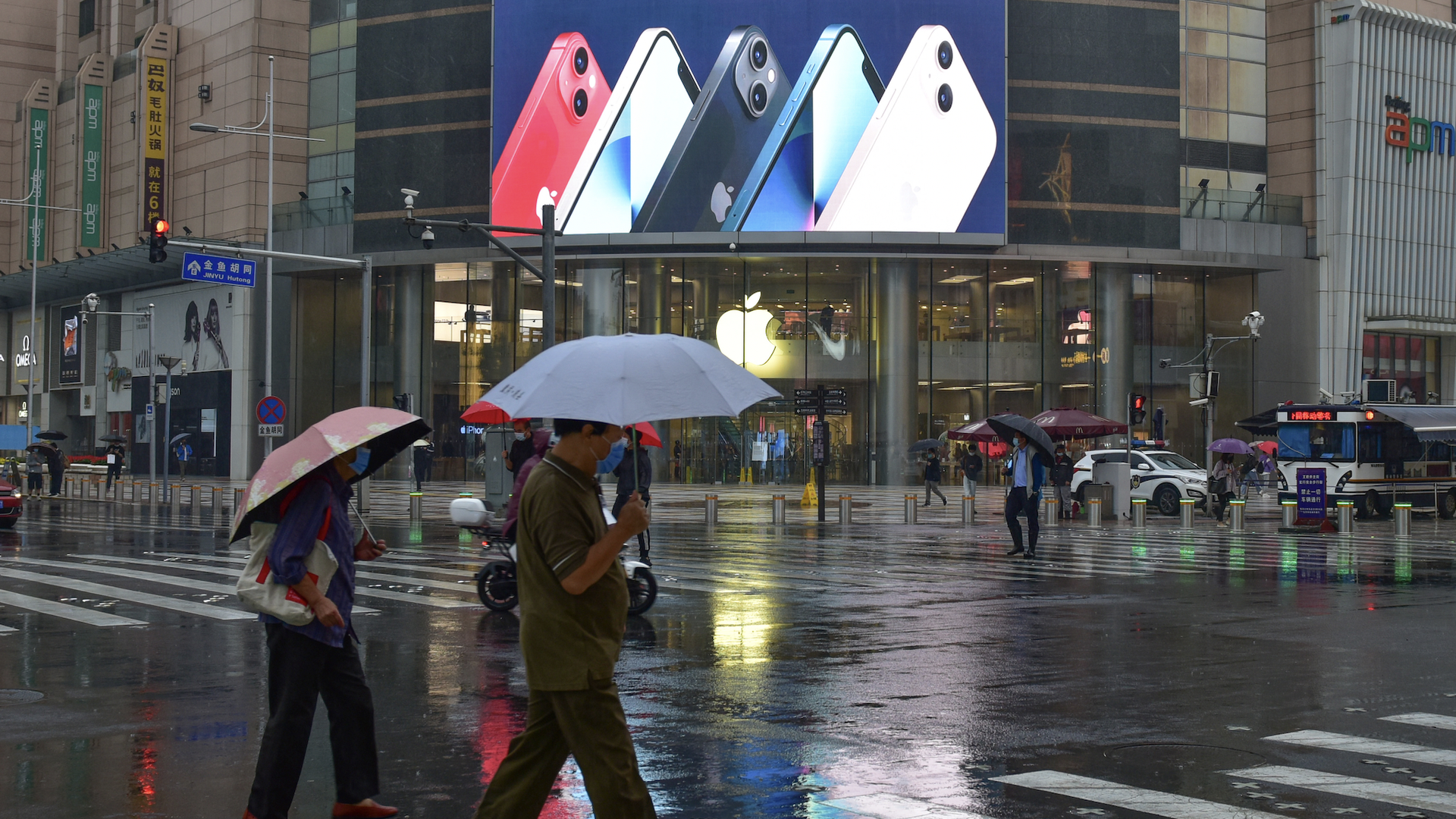Sep 27, 2021 - Technology
Exclusive: Group seeks import ban on Apple gear over forced labor
Add Axios as your preferred source to
see more of our stories on Google.

People walk past an advertisement for the new iPhone 13 series in Beijing. Photo: An Xin/Costfoto/Barcroft Media via Getty Images
